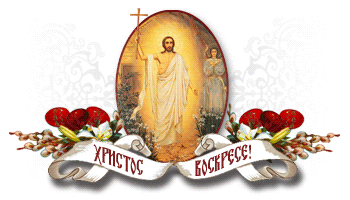
ST PETERSBURG, RUSSIA: May 8, 2017
A Delegation from the Russian Church Abroad Participates in a Youth Conference of the St Petersburg Metropoliate
 A youth seminar opened in the Blue Hall of the Diocesan Center of the St Petersburg Metropoliate on May 7, 2017, titled “1917-2017: The Fate of Russia and the Church.” Protopriest Andrei Sommer, Vice President of the Synodal Youth Department led a delegation of young people from the Russian Orthodox Church Outside of Russia in the United States, which brought with them the relics of Holy Grand Duchess Elizabeth and Holy Nun Barbara, which will be available for veneration in the city until May 12. A youth seminar opened in the Blue Hall of the Diocesan Center of the St Petersburg Metropoliate on May 7, 2017, titled “1917-2017: The Fate of Russia and the Church.” Protopriest Andrei Sommer, Vice President of the Synodal Youth Department led a delegation of young people from the Russian Orthodox Church Outside of Russia in the United States, which brought with them the relics of Holy Grand Duchess Elizabeth and Holy Nun Barbara, which will be available for veneration in the city until May 12.
The conference began with a performance by the Men’s Youth Choir of the Russian Church Abroad under the direction of Adrian Fekula.
Alexander Rozmyslov, Deputy Chief of the Diocesan Youth Department of St Petersburg delivered the keynote address, noting that seminars for youth organizers take place twice a year. Previous such events showed that Orthodox Christian youth are interested in youth projects that are held in other dioceses and abroad. This year’s event therefore took on an international flavor with the participation of American delegates.
Protopriest Konstantin Golovatsky, President of the St Petersburg Diocesan Youth Department, then spoke:
This year, we mark the hundredth anniversary of the tragedy of the Russian nation. One cannot characterize the events of that time in any other way, for the Revolution brought calamity to our nation. It was a horrifying turn in the history of our nation and fate of our people. The Revolution brought blood, death, civil war, the division of the Russian people, and a flood of emigres. The flower of the Russian intelligentsia was forced to flee the country and preserve their cultural heritage in other countries. Those who remained in Russia were forced to hide their convictions, many suffered for them, subjected to persecution, condemned, exiled, and often sentenced to death. During the Soviet years, the wave of godlessness swept over all of Russia: churches were closed, all Orthodox Christians were persecuted, one could not openly confess one’s faith. An enormous number of people suffered for their faith in Christ, spilling their blood but remaining true to their Christian conviction. Today we must not only discuss these historical facts, but state our opinion and share ideas with one another.
Fr Andrei delivered a speech titled “100 Years and 10 Years,” in which he talked about the organization of missionary work in the Russian Orthodox Church Outside of Russia, and shared his experiences in various dioceses. He began his lecture with a quote from the Second All-Diaspora Council of ROCOR, which was held in Sremsky Karlovci, Yugoslavia, in 1938.
“It is the duty of the Russian diaspora to preserve the treasures of Holy Rus and pass them on to new generations, preparing them to serve the renascence of Great Russia.”
That council was held under the chairmanship of Metropolitan Anastassy (Gribanovsky), the second Primate of ROCOR. He labored a great deal towards organizing communities of Russian exiles, defending their forced repatriation to the USSR, and established church life throughout the world. He emphasized at this Council the importance of involving parishioners in the work of the Church, while preserving their canonical subjection to their hierarchs and clergymen, with the aim of strengthening the Church Abroad, to provide spiritual education and resistance to sectarian influence. The Council’s decisions provided a great boost in morale for Orthodox Christians in the diaspora. Metropolitan Anastassy paid special attention to young people, and believed that the Church needed to defend them against the spirit of perversion and the fatal influence of their alien environments. In Europe, America and other places where Russians found themselves, parish schools, summer scout camps and all sorts of youth and social groups were established, and periodicals and books published. One of the main goals was to preserve the Orthodox Faith and culture for the future. Parish schools taught Russian language, classical Russian literature, the Law of God, Church Slavonic, liturgical singing, Russian history and geography.
The challenge of self-preservation became a special goal of the Russian Church Abroad. The internal mission of each parish priest was not only to educate, but to spiritually edify young generations within an alien culture and unknown land.
The Church, family and school worked together to teach children, and the parish priest bolstered their work. The Church must be a center of social life for young people. The goal of parish schools was to instill love for God, to reveal the meaning of life of each person: to live for the sake of one’s salvation, in Christ and with Christ; to draw people into liturgical life, to expose them to the many centuries of the life of the Orthodox Church in Russia, to unite young people and support them in life.”
The lecture was followed by a series of round-table discussions. The conference was divided into four groups (a fifth was reserved for clergymen), during which the overthrow of the Russian State in 1917 was discussed, along with the challenges of the 20th century, the role of clergymen during the years of persecution, the fate of the Holy New Martyrs and Confessors and other matters.
Voda zhivaya

|